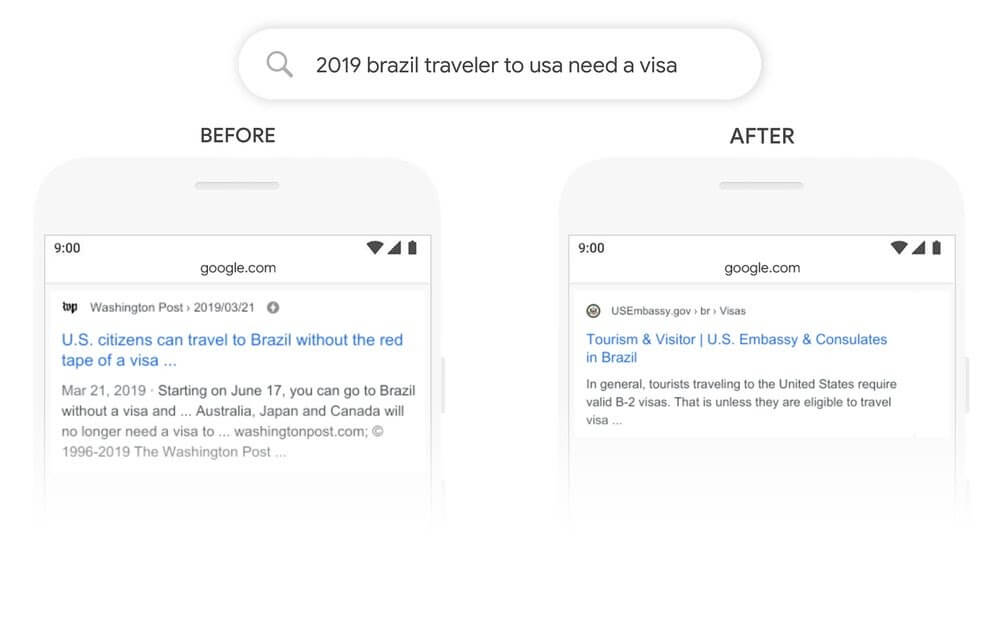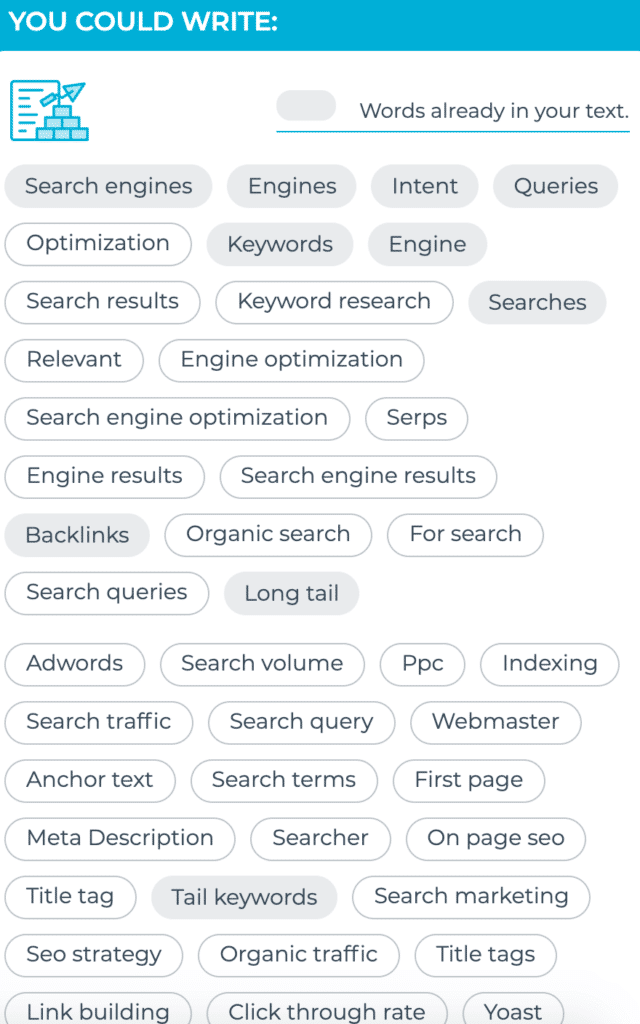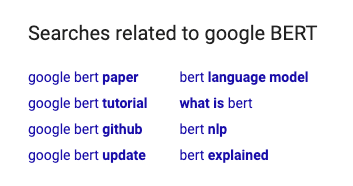BERT is the name given to the Google algorithm that was in place between October and December 2019. Behind the acronym is a mini-technological revolution, where all the buzzwords of the moment are in play: artificial intelligence, machine learning, voice control etc.
So what has changed for marketing? Do you need to review and redo your articles? Let’s take a look.
What is Google BERT and what is used for?
BERT is the name given to the changes within Google’s algorithms, launched between October and December of last year. It stands for “Bidirectional Encoder Representations from Transformers”
That snappy title means that Google has used a machine learning technique, with neural networks, to teach its algorithms to understand the context of a request better.
To understand this, let’s take an example. when you type in the word “Bank” – are you looking for the financial “bank” or talking about the “bank” of a river?
Often it’s the words that are added on that make it clearer, whether that’s “Bank account” or ‘bank of a river” Normally, Google will prompt us for more clarity. The same can be said for words with less clarity such as ‘may’, for month, or for the verb etc.
Google was already doing pretty well with that before BERT. On its blog, it goes into more detail with the more complex enquiries that it deals with.
“2019 brazil traveler to usa need a visa” is a request typed by a Brazilian who wants to know if he needs a VISA to go to the United States. Previously, Google sent an article from the Washington Post for Americans travelling to Brazil. With BERT, Google now brings up on its results page (SERP) the Brazilian Embassy page informing which visas you need to go to the USA.

Source : https://www.blog.google/products/search/search-language-understanding-bert/
Behind Google BERT, the battle for NLP (Non Language Processing)
The NLP, or Non Language Processing, is the combination of linguistics, computer science and artificial intelligence. What it is really about though is getting voice search right.
The race is on between Google and Bing since Microsoft’s search engine announced it has launched an Artificial Intelligence 6 times more than the requests on BERT.
So this is only the beginning, where we can see the Search Engines being interested in users intent and that this is key in the creation of smart and connected objects.
Anyone who has used Google or Siri has probably played around with the voice control, whether it is asking directions or more existential questions, such as the meaning of life (which it has an answer for). I’m sure you’ve also played around with it when it is unable to give a response to a question that is too opinionated. The changes here are to try to make the response on Google faster, clearer and more in tune with the complexity of peoples requests.
What kind of requests can Google BERT respond to?
There are three major challenges:
1/ 15% of Google queries are “new”
Meaning – Google has never given an answer before, it’s algorithms must search and index the best results, while trying to understand the users intent correctly.
2/ People want answers
With voice search, people want answers straight away. They expect answers immediately.
This is a massive change – because Google is no longer giving an index of pages for you to choose from, but providing the correct response.
If the search request is badly understood, it won’t work.
3/ The searches are getting longer and longer
Before 2007, internet users typed requests of 3 words on average. Then it quickly went up to 4 words.
Today, 8% of queries or search questions, and it always growing, are more than 4 words with the development of voice search.
The longer the query, the more than search engine needs to understand the semantics to get a good comprehension.
How to optimise your content for Google BERT?
Updates to Google’s algorithm are always in the news and yet the basics still remain the same. Good content + a technically good site + good promotion. A hack will only work for a brief period …
However, this update is the largest Google has announced in 5 years. So, it is on a par with Google Penguin (2012) or Gooogle Panda (2011) – you can see the details here.
Once these are put in place, it should not affect the type of queries that you can get for B2B marketing and very few of your clients are likely to find you via voice search.
Google thinks that this will only affect 10% of the Search Result pages.
If this is this case, there are two lessons to learn:
- You have to work on the semantics of your articles, and respond as well as you can to the intentions of your users/visitors.
- Long tail keywords will become more and more important in time.
Work on semantics and intentions
Semantics is about the meaning of words. While we used to talk only about keywords and tried to use as many as possible on our website, it’s now a question of adding all the semantics linked to a subject.
For example with this article, a platform like textoptimizer.com suggests different keywords – links, webmasters, backlinks, penalty or even netlinking.

But that’s not all! If you’re not getting to the toot of the user’s intentions, the article will flop. The proof: Google BERT isn’t concerned about “Link building” at all even though it’s suggested… a lot of keywords won’t add anything for the reader!
So, what’s the best way to be able to understand someone’s intentions?
Well, here is where Google can help us. If you go on Google to:
- People Also Ask
- Searches related to Google BERT


You can find out the main questions that people are interested in – giving shape to your article, which in turn leads to the following themes to discuss:
- What is it?
- What does it do.
- What is NLP
- Information and best practice
You only need to think about your buyer personas and you have your article.
The long train and semantic cocoons
If you are starting your content creation you don’t want to start looking at long train’s immediately.
BERT confirms this. If you look up a keyword such as “emailing” (you’ll get 60,200,000 results). You are better off looking at specific questions for your search engine optimization.
Again, if you check “People also ask” and other searches you’ll get
- definition
- why email / the benefits
- how to email/tutorials
- talk about statistics
- distinguish between prospecting and marketing
- talk about software
- etc
This will help you understand the users intent and be able to attract your key market on to your site.
Let us know if you’re going to create content optimized for Google BERT to improve your natural search? Are you going to change the way you produce articles? Let us know in the comments below.






